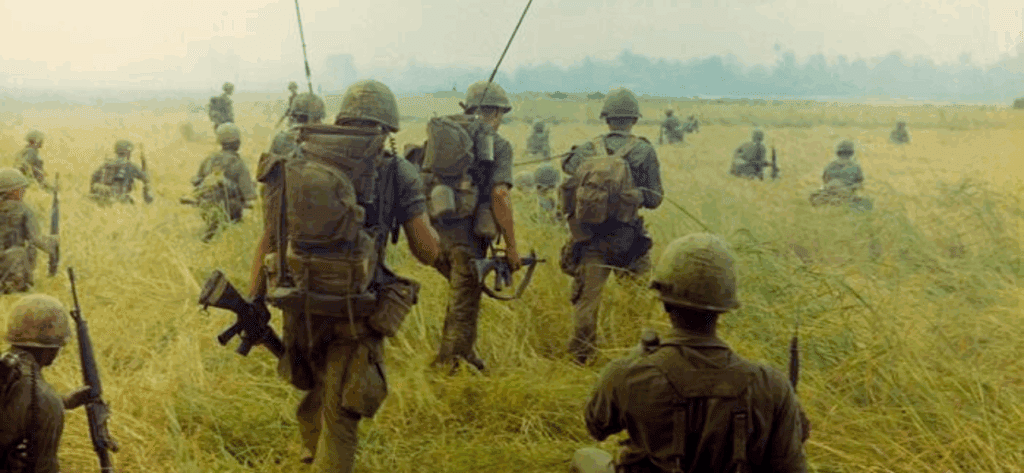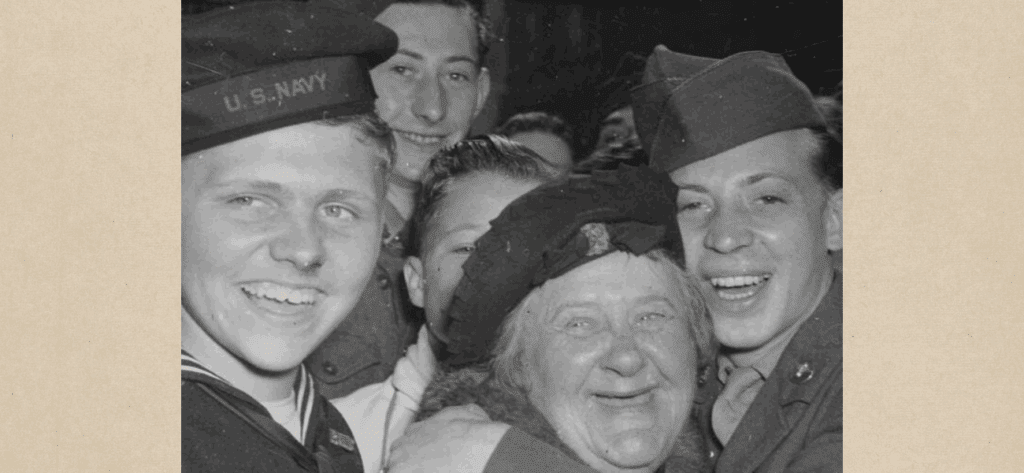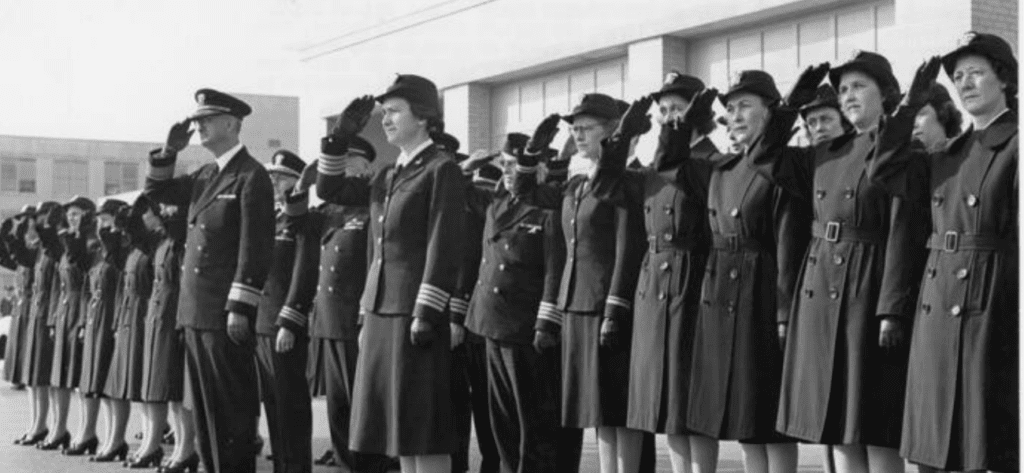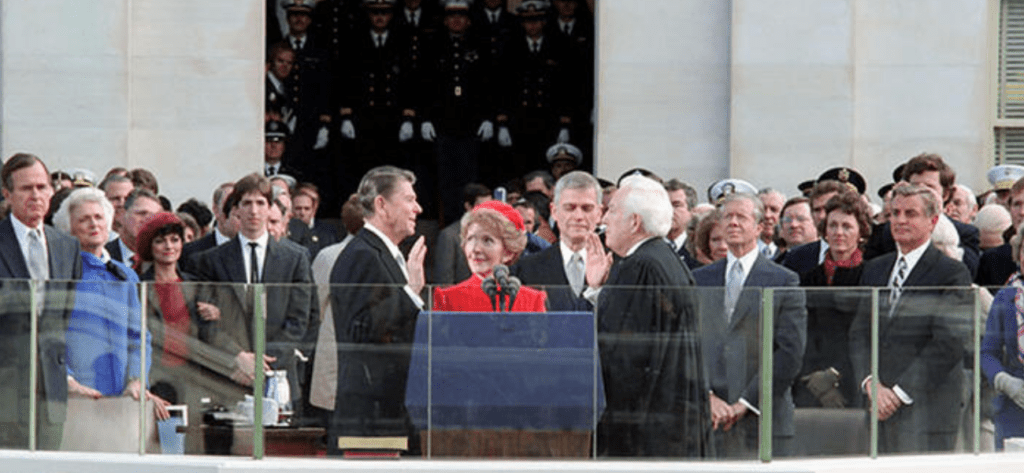Just in time for Halloween, the National Archives Museum shares a 1959 State Department memo about the Yeti, the long-feared Abominable Snowman (and relative of Bigfoot). Study this document carefully before planning a climbing expedition to find this creature!
Believed by some to live in the Himalayan Mountains, interest in the Yeti spiked during the 1950s, when Western climbers ascending Mount Everest reported Yeti footprints. This prompted the government of Nepal to issue regulations for Yeti-hunting expeditions, including:
Pay the Nepalese government for a permit (5,000 rupees, roughly $1,100 in today’s currency); Photograph or capture the Yeti, but not kill it; Turn over to Nepalese officials any photos or information of Yeti sightings.
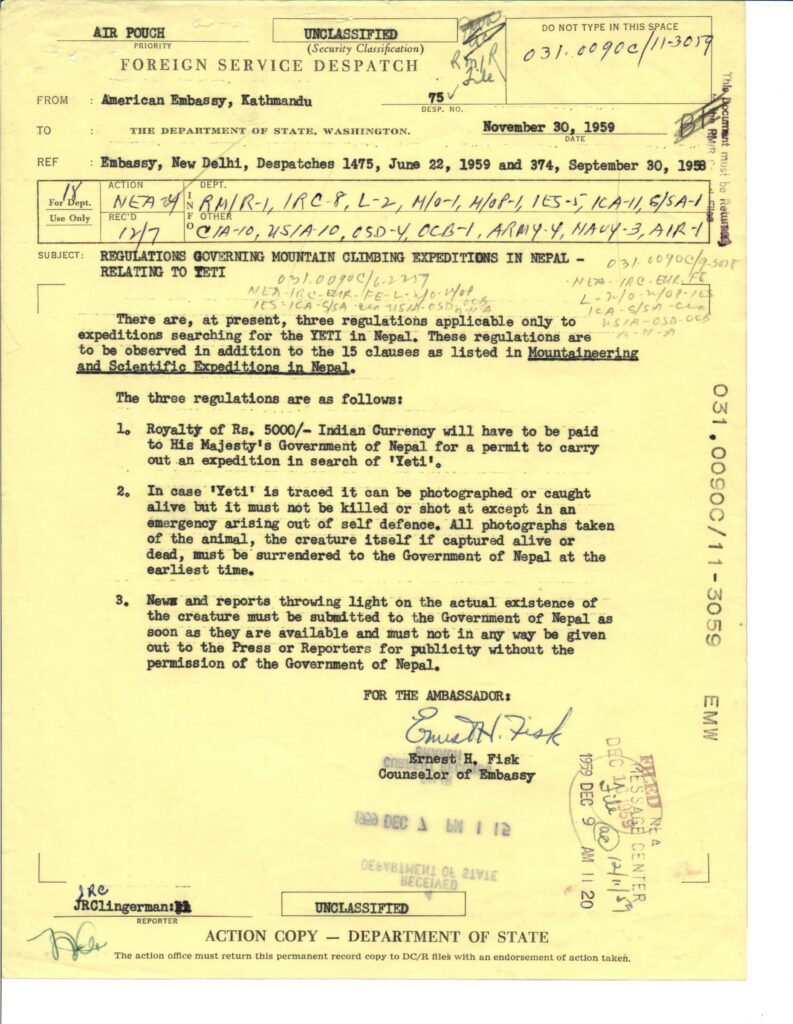
The record, from the American Embassy in Kathmandu, Nepal, was on display in the East Rotunda Gallery of the National Archives Museum in Washington, DC, from September 28 – November 29, 2017.
The National Archives Museum’s “Featured Document” exhibit is made possible in part by the National Archives Foundation.
